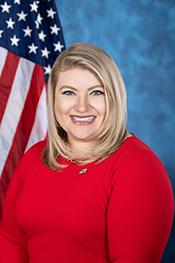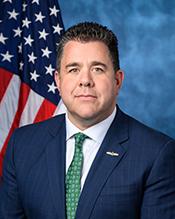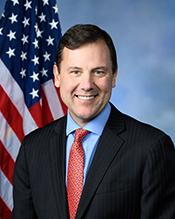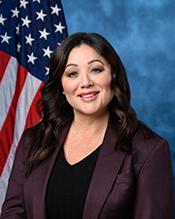0
0
0
IVF with HSAs Act of 2024
12/19/2024, 9:07 AM
Summary of Bill HR 9141
Bill 118 hr 9141, also known as the IVF with HSAs Act of 2024, is a piece of legislation currently being considered by the US Congress. The bill aims to allow individuals to use funds from their Health Savings Accounts (HSAs) to cover the costs of in vitro fertilization (IVF) procedures.
Under current law, HSAs can only be used to pay for qualified medical expenses, such as doctor visits, prescription medications, and certain medical procedures. IVF, however, is not currently considered a qualified medical expense, meaning individuals cannot use their HSA funds to cover the costs of this fertility treatment.
The IVF with HSAs Act of 2024 seeks to change this by allowing individuals to use their HSA funds to pay for IVF procedures. This would provide individuals struggling with infertility the financial support they need to pursue IVF treatment, which can be costly and often not covered by insurance. Supporters of the bill argue that allowing HSA funds to be used for IVF will help make fertility treatment more accessible and affordable for individuals who may not be able to afford it otherwise. They believe that this change will help more people build the families they desire. Opponents of the bill, however, may argue that using HSA funds for IVF could lead to increased healthcare costs overall, as it may incentivize individuals to pursue expensive fertility treatments that may not always be successful. They may also raise concerns about the potential ethical implications of using HSA funds for IVF. Overall, the IVF with HSAs Act of 2024 is a proposed piece of legislation that aims to expand the allowable uses of HSA funds to cover the costs of IVF procedures. It is currently being debated in Congress, and its outcome will have implications for individuals seeking fertility treatment in the United States.
Under current law, HSAs can only be used to pay for qualified medical expenses, such as doctor visits, prescription medications, and certain medical procedures. IVF, however, is not currently considered a qualified medical expense, meaning individuals cannot use their HSA funds to cover the costs of this fertility treatment.
The IVF with HSAs Act of 2024 seeks to change this by allowing individuals to use their HSA funds to pay for IVF procedures. This would provide individuals struggling with infertility the financial support they need to pursue IVF treatment, which can be costly and often not covered by insurance. Supporters of the bill argue that allowing HSA funds to be used for IVF will help make fertility treatment more accessible and affordable for individuals who may not be able to afford it otherwise. They believe that this change will help more people build the families they desire. Opponents of the bill, however, may argue that using HSA funds for IVF could lead to increased healthcare costs overall, as it may incentivize individuals to pursue expensive fertility treatments that may not always be successful. They may also raise concerns about the potential ethical implications of using HSA funds for IVF. Overall, the IVF with HSAs Act of 2024 is a proposed piece of legislation that aims to expand the allowable uses of HSA funds to cover the costs of IVF procedures. It is currently being debated in Congress, and its outcome will have implications for individuals seeking fertility treatment in the United States.
Current Status of Bill HR 9141
Bill HR 9141 is currently in the status of Bill Introduced since July 25, 2024. Bill HR 9141 was introduced during Congress 118 and was introduced to the House on July 25, 2024. Bill HR 9141's most recent activity was Referred to the Subcommittee on Health. as of December 17, 2024
Bipartisan Support of Bill HR 9141
Total Number of Sponsors
2Democrat Sponsors
0Republican Sponsors
2Unaffiliated Sponsors
0Total Number of Cosponsors
3Democrat Cosponsors
0Republican Cosponsors
3Unaffiliated Cosponsors
0Policy Area and Potential Impact of Bill HR 9141
Primary Policy Focus
TaxationAlternate Title(s) of Bill HR 9141
To amend the Internal Revenue Code of 1986 to expand eligibility for health savings accounts, and for other purposes.
To amend the Internal Revenue Code of 1986 to expand eligibility for health savings accounts, and for other purposes.
Comments
Sponsors and Cosponsors of HR 9141
Latest Bills
National Defense Authorization Act for Fiscal Year 2026
Bill S 1071December 13, 2025
Enduring Justice for Victims of Trafficking Act
Bill S 2584December 13, 2025
Technical Corrections to the Northwestern New Mexico Rural Water Projects Act, Taos Pueblo Indian Water Rights Settlement Act, and Aamodt Litigation Settlement Act
Bill S 640December 13, 2025
Incentivizing New Ventures and Economic Strength Through Capital Formation Act of 2025
Bill HR 3383December 13, 2025
BOWOW Act of 2025
Bill HR 4638December 13, 2025
Northern Mariana Islands Small Business Access Act
Bill HR 3496December 13, 2025
Wildfire Risk Evaluation Act
Bill HR 3924December 13, 2025
Energy Choice Act
Bill HR 3699December 13, 2025
ESTUARIES Act
Bill HR 3962December 13, 2025
Improving Interagency Coordination for Pipeline Reviews Act
Bill HR 3668December 13, 2025



